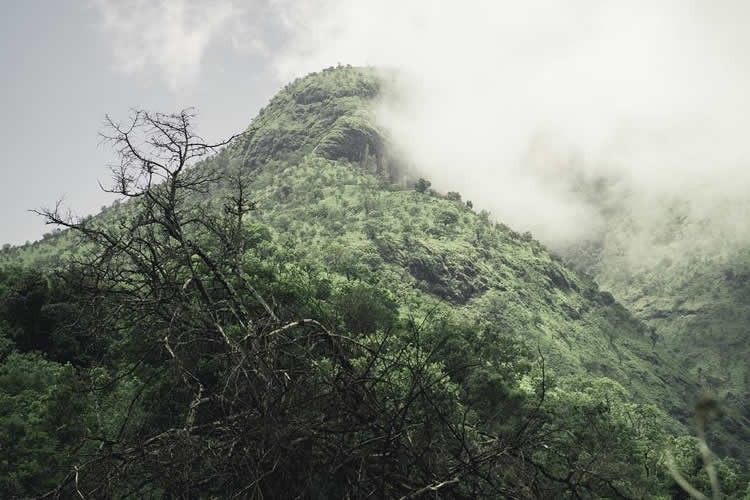Things to know before Rwenzori Trek- Rwenzori Mountains National Park

Rwenzori Trekking Permits: If your planning to climb Rwenzori Mountains National Park, you need to acquire a permit before hiking the mountain. You can get these through a tour operator since the Uganda Wildlife authority changed the rules for the permits. Take a note that getting to the park illegally is a crime and high penalty apply.
Altitude Sickness: Altitude sickness can be a real concern when you hike at elevations exceeding 4000 meters above sea level. Acute Mountain Sickness can lead to symptoms like headaches, nausea, fatigue, and more. Gradual ascent, proper hydration, and carrying Diamox can reduce the risk. If you’re prone to iron deficiency anemia, consider taking iron supplements before and during the hike. Red blood cells carry oxygen, and being anemic can make you more susceptible to altitude sickness. If you experience severe headaches or other serious altitude sickness symptoms, it’s crucial to descend at least 3,000 feet immediately and seek medical attention. You should also visit a doctor for a medical check up to see whether you can make it up to the top.
Rules and Regulations: Follow the rules and regulations of the hike as given by the park management which often include not hiking alone and not littering. Respect the environment and local guidelines, and respecting your hike mates.
Rwenzori recommended tour operators.
If your booking your Rwenzori Tour and your looking for the best deals for Climbing Rwenzori Mountains, See the two reliable tour operators within the region.
- Rwenzori Expeditions
- Rwenzori Mountaineering Service

Accommodation: Expect basic accommodations, such as cabins or tents with shared rooms. Bring a warm sleeping bag and insect/mosquito repellents. Showers may be limited, so bring wet wipes for hygiene.
Meals: Meals on the mountain are meant for sustenance, not luxury. Don’t expect gourmet dining but know that they are balanced, rich in carbohydrates, proteins, and fats to fuel your body during the trek and are suitable for the challenging conditions.
Wildlife Encounters: Be prepared to encounter diverse wildlife during your hike. Respect their habitats and keep a safe distance when observing. Some of the animals you could encounter includes Rwenzori Three-Horned Chameleon, Rwenzori Red Duiker, Rwenzori Sun Squirrel, Rwenzori Turaco, Rwenzori Leopard, Rwenzori Bat, Rwenzori Long-Haired Bat, Rwenzori Red-Fronted Parrot.
Enjoy the Journey: Remember that the beauty of the Rwenzori Mountains isn’t limited to reaching the summit. The landscape, vegetation zones, and wildlife are remarkable, so take time to appreciate them and capture these moments with your camera.
Multiple Summits: The Rwenzori Mountains have several summits, each with its own unique characteristics and challenges. These summits include Mount Speke, Mount Baker, Mount Emin, Gessi Ridge, Mount Luigi di Savoia. All these summits have beautiful sceneries.
Bird watching in Rwenzori Mountains
Rwenzori Mountain Trekking & Hiking

Hiking Gear and Clothing: Carry all the necessary hiking gear and clothing. Layer your attire for quick adjustments based on the weather. Ensure you have rain and windproof outerwear, as conditions can change rapidly. Proper hiking gear includes: Waterproof and Windproof Jacket, Waterproof Pants, Insect repellents, Hiking Pants, Sturdy Hiking Boots,Warm Hat, Sunglasses, Backpack, Trekking Poles, Water Bottle, Water Purifier, Headlamp or Flashlight, Map and Compass, GPS Device, Sleeping Bag, First Aid Kit, Knife or Multi-Tool, Fire Starter or lighter, Gumboots, Shoe covers, Camera, Ice Axe, Helmet, Rope, Mountaineering Boots, Face Mask, Snow Goggles, Ice Climbing Gloves, Snowshoes, Ice Climbing Harness. Check on the official Page for Rwenzori Mountains National Park
Nature walk in Rwenzori Mountains

Hydration: Bring sufficient drinking water and snacks to stay energized during your hikes. Proper hydration is essential at high altitudes. Glucose can help you regain energy. Proper hydration directly impacts your energy levels. Dehydration can lead to fatigue, dizziness, and decreased endurance. By consuming sufficient water and glucose-rich snacks, you maintain the energy needed for strenuous climbs and long days on the trail.
Hiring a Porter: Consider hiring a porter to carry your luggage, allowing you to conserve energy for hiking. Tipping the porter is a kind gesture but not mandatory.
Physical Requirements: Hiking in the Rwenzori Mountains demands physical fitness, endurance, and altitude acclimatization. Prepare yourself with appropriate training and experience as a hiker. Check out on Uganda Safari
The rugged and steep terrain of the Rwenzori Mountains requires a high level of physical fitness. You’ll encounter long, strenuous ascents and descents, and the ability to carry a backpack with your supplies is necessary. Cardiovascular fitness, leg strength, and endurance are key components of physical readiness.
Prior hiking experience, especially in challenging terrains and at higher altitudes, is highly beneficial. Familiarize with the physical demands of hiking, using trekking equipment.
Duration of the Hike: Understand the duration of your hike and prepare physically and mentally for it. Your trips involve daily hikes lasting about 8 hours over various terrains. Pace your self, avoid overexertion and take breaks as needed to manage fatigue and maintain your physical condition in order to make it through the long trekking hours.
Respect to Local Communities: The Rwenzori mountains are home to communities like the Bakonjo. Interact respectfully with local communities, seek permission before taking photographs, and learn about and respect local customs and traditions.
Wildlife Watching in Rwenzoris


